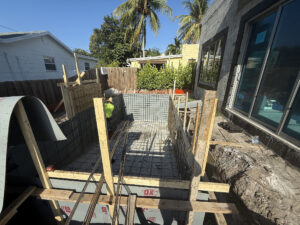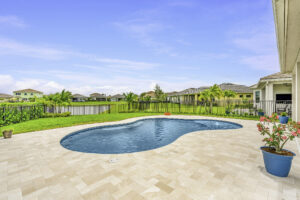Dive into the heart of your pool’s functionality with our exploration of the ideal horsepower for pool pumps.
Ensuring your pool’s waters sparkle under the sun involves more than just routine cleaning—it requires the right machinery to circulate and filter effectively.
In this blog, we’ll unpack how selecting the perfect horsepower for your pool pump is crucial for maintaining that blissful, crystal-clear swim haven.
Join us as we navigate the technical waters to help you make the best choice for endless summer fun.
Why Is A Pool Pump Necessary In The Swimming Pool?
The pool pump keeps the aquatic environment safe and sanitized for swimming. The pool’s functionality and cleanliness are dependent on optimum water circulation.
Pool maintenance in West Palm Beach is said to be incomplete without proper checking of the water pump and its functionality!
Pool Water Requirements:
- Filtered to remove dirt and debris
- Sanitized
Do you want to keep the pool waters well sanitized? Circulate the chemically balanced water in the swimming pool with the help of the pool pump. Stagnant water breeds germs and is a breeding ground for bacteria and green-colored algae. An energy-saving pump near the filter in the pool consumes less energy and optimizes water circulation.
What Horsepower Should The Pump Be?
The horsepower needed for a pool pump depends on several factors, including the size and volume of the pool. Generally, a pool should be capable of circulating its entire volume within 8 to 12 hours.
For smaller residential pools, pumps typically range from 0.5 to 1.5 horsepower. The flow rate, which is measured in gallons per minute (GPM), should match the pool’s capacity and the filtration system’s requirements.
For example, a 20,000-gallon pool might require a pump that provides a flow rate sufficient to turn over the water within the recommended time.
It’s essential to consult with pool service professionals when choosing the pump’s horsepower.
They can assess factors such as pool size, piping dimensions, and additional features like waterfalls or spas to recommend the most efficient pump.
This approach ensures that the pump operates effectively, minimizing energy use and wear on the system while maintaining clean and clear water.
Water Filtration: Pool pumps are placed away from the eye and lie quietly out of view, but they are an integral part of pool equipment and pool upkeep.
The water pump is in charge of filtration and carries water and chemicals to the filter for chemical balancing to keep the water sparkling clean.
Dirt and debris start to accumulate in stagnant and still waters. The water pump is placed in front of the filtration system, which circulates the chemicals continuously through the pool’s water.
It filters the water for impurities or sediments floating in it. The deposits are filtered and removed, making the waters safe, clean, and pure, ideal for swimming.
Maintaining Water Chemistry: Chemicals are added to the swimming pool for chemical balancing and maintaining water chemistry to keep it free from contaminants and algae.
The pool pump is strategically placed near the filtration system and carries the water around.
Water Sanitization With Chemical Balancing: The pool pump is responsible for effectively distributing these substances so that the sanitation and hygiene levels of the water are adequately maintained.
The health of the pool depends on the effective working of the pool pump. Pool maintenance is not possible without properly pumping water to clean it.
Energy Saving Device With Environmental Sustainability
The pool pumps are ingeniously engineered to save electricity usage. These efficient, energy-saving devices are ideal for environmental sustainability and operational cost savings.
Electricity consumption decreases greatly, helping reduce costs and rendering an eco-conscious performance, resulting in a reduced carbon footprint.
Choose The Pump Carefully
The choice of pump has to be made sensibly because every pump has distinct features with several benefits. If you want to ensure optimal performance, energy efficiency, and maximum filtration, then pick the pump after checking out its horsepower and energy output.
Choosing the correct type of pump with high performance is essential to match the pump’s performance with the pool’s needs and can significantly impact operation and energy costs.
Moreover, circulating the water ensures the pool stays clean and well-maintained all the time with proper chemical distribution and filtration.
The efficiency of the pool pump depends on the Horsepower and the Energy Star rating, so choose a pump best suited to your swimming pool and your utility bill!
Debris and dirt can clog the pump and disturb the efficiency and performance of the machine. Thus, inspection and clearing of the different parts of the pool pump has to be done periodically, to prolong its life span.
Even if you plan on pool remodeling in West Palm Beach, the pool pump is a vital component that must be considered immediately.
Do not neglect the proper placement of the pool pump. Place it at the entry point of the filtration system so that it functions optimally and filters the water properly.
Contact Finn’s Pool Services by scheduling an appointment with our team and get all the guidance you need!



